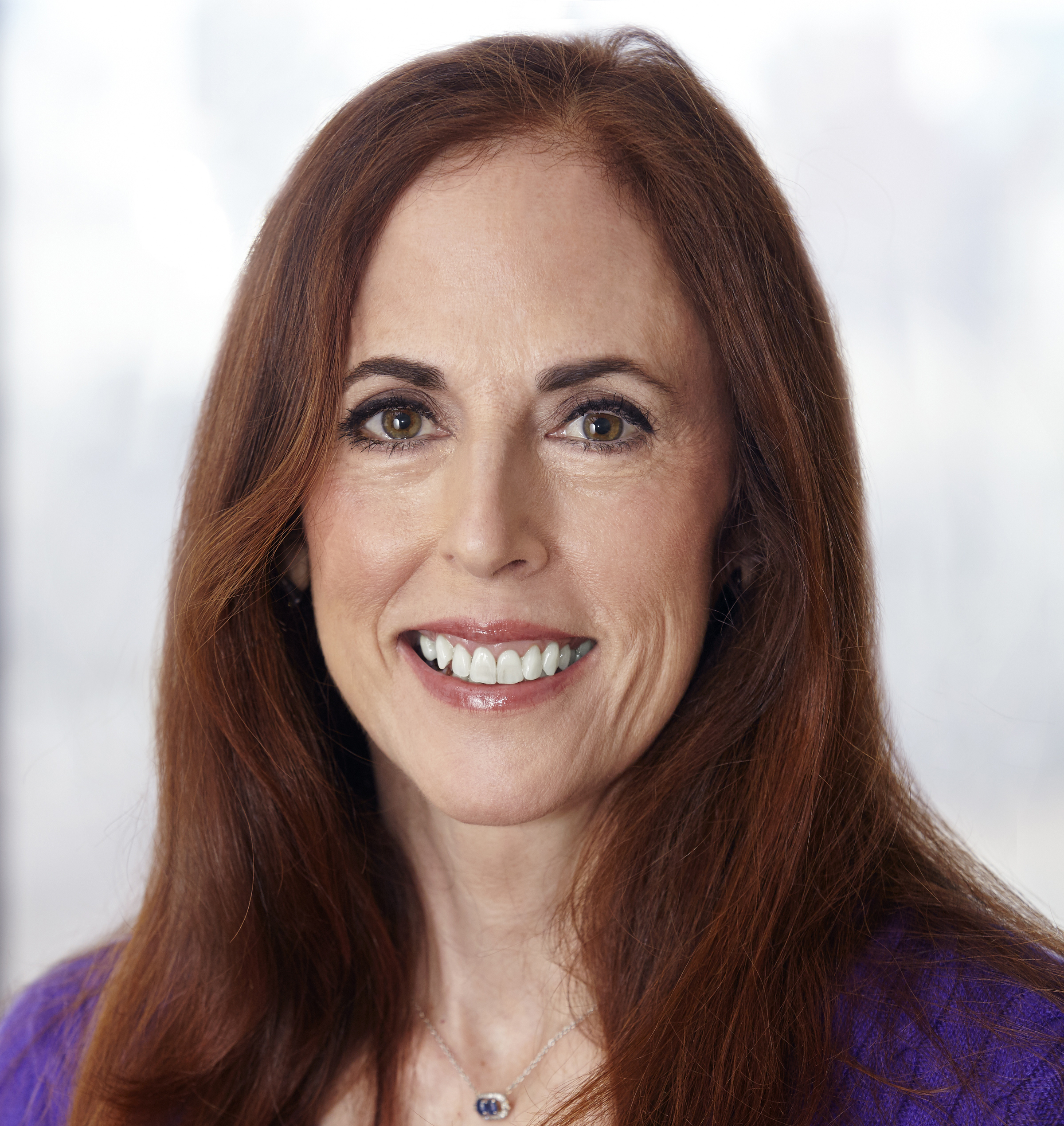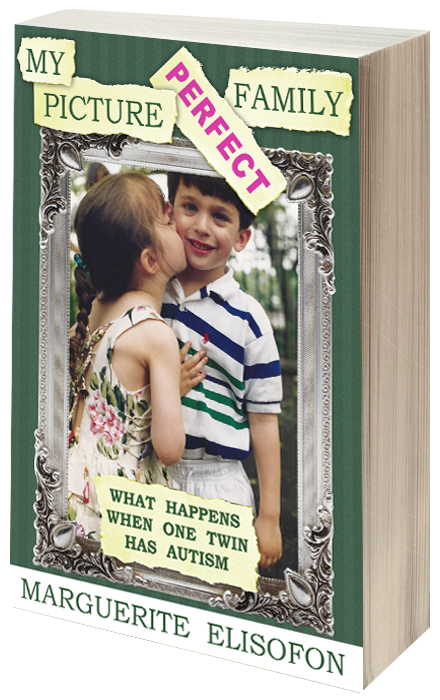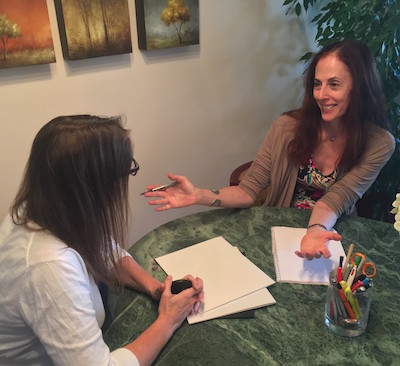In a world where the number of babies born on the autistic spectrum has more than tripled from 1 in 150—when my daughter Sarah was born in 1990—to 1 in 45 in 2015, is there any GOOD news on the disabilities horizon? Ever since my daughter (25 this month) graduated from Pace University, her life of learning, productivity and support has—despite all her prodigious efforts and mine—been steadily disintegrating.
Does ANYONE care about her and ALL the young adults with disabilities? The answer has mostly been no. Over the past two years I’ve agonized over the dawning realization that Sarah has been consigned to the human scrap heap of the “developmentally disabled” and/or mentally ill—to be either pitied or ignored—as people grapple with ISIS, climate control, and seemingly bigger global crises. But last week I changed my mind and decided there’s a glimmer of hope—not just for those on the spectrum, but also for people with Downs Syndrome and other labels for learning and emotional differences. The Dream Street Theatre Company offers that glimmer to the differently abled.
Last Friday I watched Sarah perform in the DreamStreet production “Love (and loneliness) in the (not so) Different.” Would it be just another pity party? I’d wondered before the show. With a cast of 27 members from 18 to 40 with autism, Downs Syndrome and a variety of mild to severe disabilities, I was not overly optimistic. I’ve attended all of Sarah’s performance in a wide variety of venues, and I often find myself glancing at my watch, bored and depressed, wishing I could be somewhere else or that my daughter could be on a different stage. Guilt always follows that wish because I know I should be happy that people with disabilities are given a chance to be heard up on stage, and grateful that my daughter (with perfect pitch!) always gives one of the best performances. But after Sarah sings and I cheer for her, I’m usually itching to leave.
This time Sarah was given an extraordinarily difficult song, “The Stars and the Moon.” Despite her usual confidence, Sarah was miserable, melted down and thought the song was too hard when she tried to practice at home. After listening to her a few times, Henry and were inclined to agree. I had hoped that Aubrie Therrien, the Artistic Director, would be able to take Sarah out of her comfort zone, but maybe she was pushing my daughter too far. Sarah usually likes to sing in a high key, opera style, at a slow, unvaried pace. “The Stars and the Moon” required Sarah’s voice to go EVERYWHERE she never thought it could: from high to low, slowly and then with lightning speed, enunciating a barrage of words and then stopping suddenly for humor. In other words, Sarah had to trust the director and RJ, her singing coach, and reach deep inside in order to arrive at new and unfamiliar places. Henry and I held our collective breath as she walked to the mike.
In the audience, we were spellbound while our daughter sang on stage Sarah was flawless and amazing (to use her favorite word). She received a standing ovation.
“Boy, that girl is loaded with personality, and what a voice!” the man next to me exclaimed. “That’s my daughter,” I beamed, jumping to my feet.
Back in my seat, a little later I realized that Aubrie had not only helped my daughter sing better than ever, but she had also brought out the best in everyone in the cast, creating a meaningful, perfectly paced show. Instead of being bored or depressed, I enjoyed an unexpectedly uplifting experience. I decided to interview Aubrie and learn all I could about the DreamStreet story.
Founded in 1998 as a non-profit organization, DreamStreet Theatre Company provides education and inspiration for special needs individuals with a passion for the performing and creative arts. As the company’s Playbill says, “our performances attempt to break down stereotypes and illustrate the profound effect art can have on life.”
 For Aubrie Therrien, the Artistic Director, with a BFA in theatre and Masters in Public Health from NYU, “DreamStreet is the perfect marriage for me, improving one’s quality of life through theatre arts.”
For Aubrie Therrien, the Artistic Director, with a BFA in theatre and Masters in Public Health from NYU, “DreamStreet is the perfect marriage for me, improving one’s quality of life through theatre arts.”
Q: What made you choose to work with the special needs population?
A: “I’ve always been a huge advocate for the differently abled community. My mother teaches special ed classes in Virginia, and I used to write play workshops of well-known stories for her students. I love this population because they are so sincere in the way they express themselves and how they feel about you and the world. They are also talented, driven, ambitious, kind, generous, hilarious and hardworking. No one can help that they are born different, so I feel it’s important they receive every opportunity everyone else has.”
Q: What have you learned from working with this group?
A: “This group in particular has shown me the importance of feeling like you are part of something larger than yourself. It’s incredibly important to our actors to be part of an ensemble and work together to create something they’re proud of—just like any other working professionals. Along the way, they also grow more confidence in themselves, a sense of self-worth and develop a ‘second family’ dynamic with the community of the cast.”
Q: What do you hope to accomplish with DreamStreet in the future? What’s your dream?
A: We want to have a thriving arts collective, an almost urban center where are our actors can come and take arts classes, yoga, or acting for the camera classes and then go to rehearsals at night in our theatre space. We want our actors to be paid for their hard work for each of our productions and to employ them in other areas of the company. We are also working to develop a touring theatre for youth, where we can bring a multi-sensory play to day-habs and schools across NY and establish a junior company for differently abled kids who love to sing, dance or act. In fact, we started our first kids class in the spring called “Finding Your Superhero” and hope to extend our kids programming in the fall. We also see DreamStreet eventually being a multi-city company and changing the quality of resources and arts access for the differently-abled population.”
Q: If you had more money, how would you expand or change the group?”
A: “Space. Someplace where we can establish a working theatre company and arts collective that’s taken seriously within the NYC theatre community and where our members can have a safe haven to learn, grow and work together and be paid to build great things. We imagine our space having arts classes across all modalities during the day, a functioning café and coffee shop, and turning into a rehearsal space and theatre venue in the evenings with a resident acting company—all this staffed with our community members as well.”
Q: Beyond choosing the material and directing the group, what is your most important role?
A: “In my opinion, my most important role is being the cast support person and mentor. This is a very social experience for our members, and I’m not just their director, I’m also their friend and colleague.”
A: Is there any information you’d like to include about how to help DreamStreet grow?”
Q:”Yes! You can make a tax deductible donation online at www.dreamstreetnyc.org and sign up for our programming and new kids’ classes!
Some dreams are more worthwhile—and inclusive—than others and deserve to come true. Are you thinking what I’m thinking?






 Marguerite Elisofon is a New York City writer and the author of My Picture Perfect Family, a memoir about how her family navigated life with a child on the autistic spectrum before the internet and support groups existed. She also blogs about parenting young adults and disability related issues in The Never Empty Nest. Her writing has been featured in a variety of publications, including Time and NY Metro Parents magazine, and her family’s story has been featured by the NY Post, Fox News, The Daily Mail, and on Jenny McCarthy’s Dirty Sexy Funny radio show. A Vassar graduate, Marguerite was born and raised in New York City, where she still lives with her husband, Howard, in their mostly-empty nest. She is available to speak about a wide variety of issues relating to twins, parenting, and autism.
Marguerite Elisofon is a New York City writer and the author of My Picture Perfect Family, a memoir about how her family navigated life with a child on the autistic spectrum before the internet and support groups existed. She also blogs about parenting young adults and disability related issues in The Never Empty Nest. Her writing has been featured in a variety of publications, including Time and NY Metro Parents magazine, and her family’s story has been featured by the NY Post, Fox News, The Daily Mail, and on Jenny McCarthy’s Dirty Sexy Funny radio show. A Vassar graduate, Marguerite was born and raised in New York City, where she still lives with her husband, Howard, in their mostly-empty nest. She is available to speak about a wide variety of issues relating to twins, parenting, and autism. 